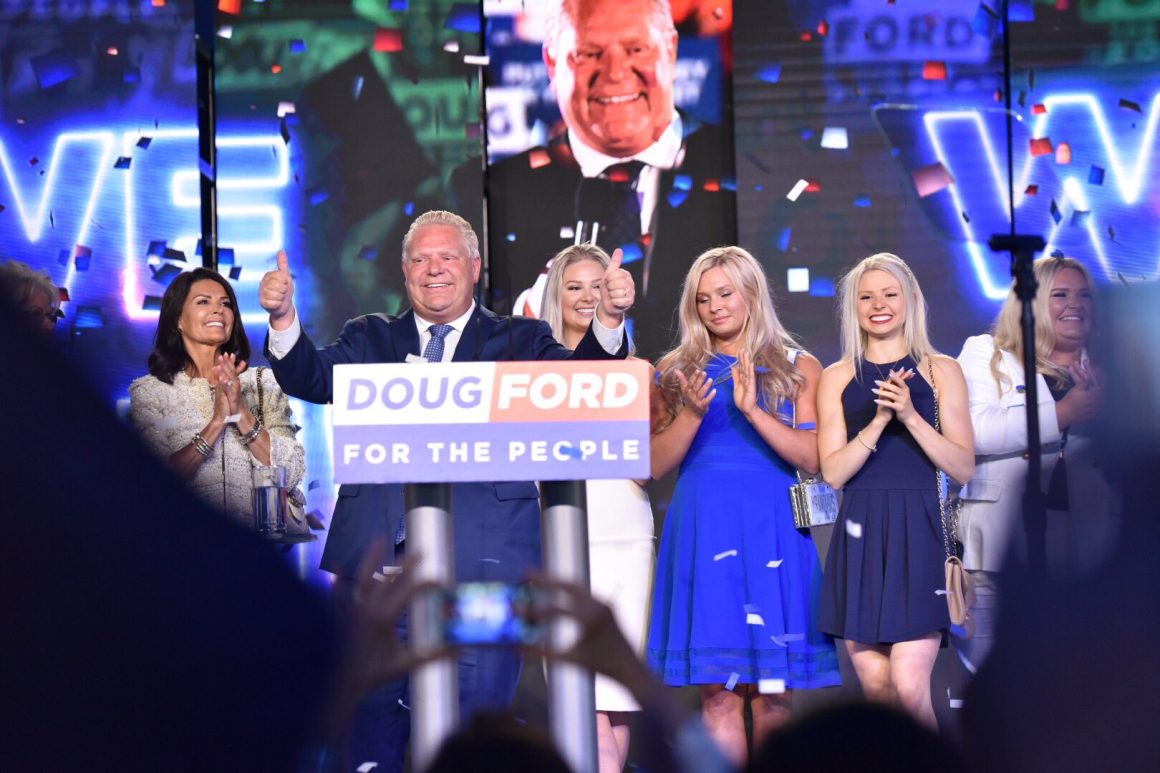
Coverage surrounding Ontario election sets concerning precedent for Alberta in 2019
June 22 2018 —
Doug Ford is the next premier of Ontario.
This sentence seemed absurd mere months ago, but Ontario’s June 7 provincial election ended with a decisive victory for Ford’s Progressive Conservatives, taking 76 seats to the opposition New Democratic Party’s 40 seats.
Immediately following the election, local punditry focused on parallels between the political landscapes of Ontario and Alberta. Though some of those takes lacked the sobriety granted by a bit of time for digestion, they were pretty apt regardless. Both provinces have a somewhat unpopular centre-left government. Both faced or are facing a populist conservative candidate with a hatred of the carbon tax and a thin platform beyond that. Both province’s conservative parties remain popular despite a slew of controversies.
But as commentators look at Ford’s election as Ontario’s premier as an omen for United Conservative Party leader Jason Kenney’s preordained assent to power here in Alberta, a different element of Ontario’s recent election may be a sign of things to come locally — the alarming media coverage in the months leading up to the election.
While there was plenty of questionable coverage during election season, nothing was as egregious as the front page of the Toronto Sun’s May 26 edition, which declared, in all-caps, that “Hitler haunts the NDP.” The headline was referring to the story that Tasleem Riaz, an NDP candidate in Scarborough-Agincourt, shared a meme on her personal Facebook account portraying Hitler doing a Nazi salute with accompanying text reading, “If you don’t like a rule…just follow it…reach on top…and change the rule.”
That story is certainly one worth reporting. The obvious problem with the Sun’s coverage — and a problem that extends to its Calgary counterpart — is the absurdly sensationalist nature in how it’s presented.
Something less obvious than the Toronto Sun’s hyper-partisan, sensationalist coverage is the level to which it was strategized. An April Canadaland report detailed an internal Sun memo that outlined an “editorial perspective,” specifically focusing on attacks on the then-incumbent Liberal government.
A similar thing happened in Alberta in 2015, when Postmedia instructed at least one of its Alberta papers to endorse Progressive Conservative candidate Jim Prentice. Later that year, Postmedia sent a mandate for its papers to endorse federal Conservative leader Stephen Harper. And we’d be naive to think that the same thing won’t happen next May in Alberta.
Forced endorsements and partisan mandates like these are abuses of power by those with the ability to influence how we consume the news. Their directives are reflective of the political outcomes that will most benefit them and others within their class. Those outcomes almost never align with those that will benefit the majority of the readers of their publications.
The media frenzy surrounding Alberta’s upcoming election will begin in earnest sooner than we expect. It’s important that Albertans remain critical of the interests guiding the media they consume as we inch closer to that May 2019.
— Jason Herring, Gauntlet Editorial Board
